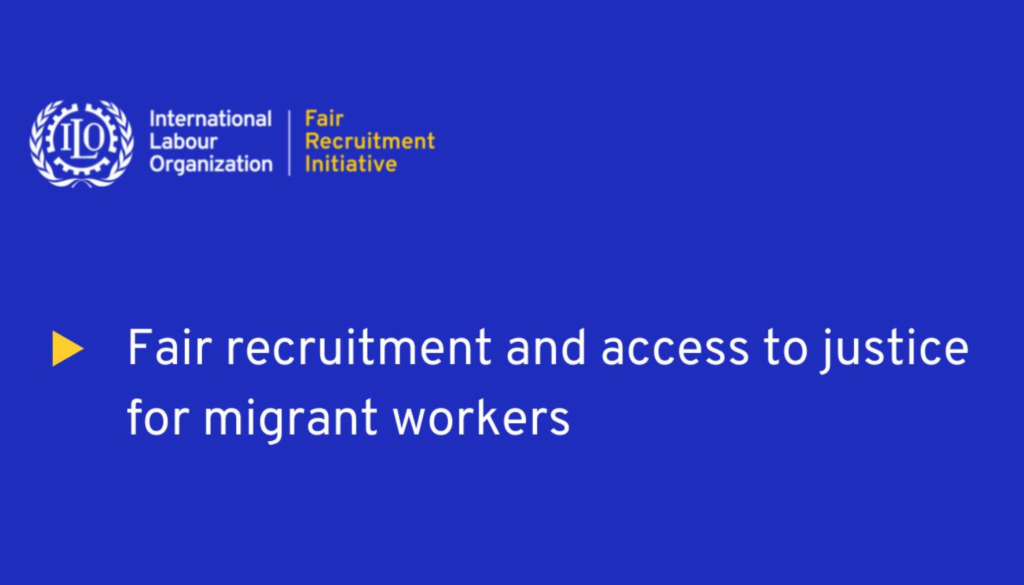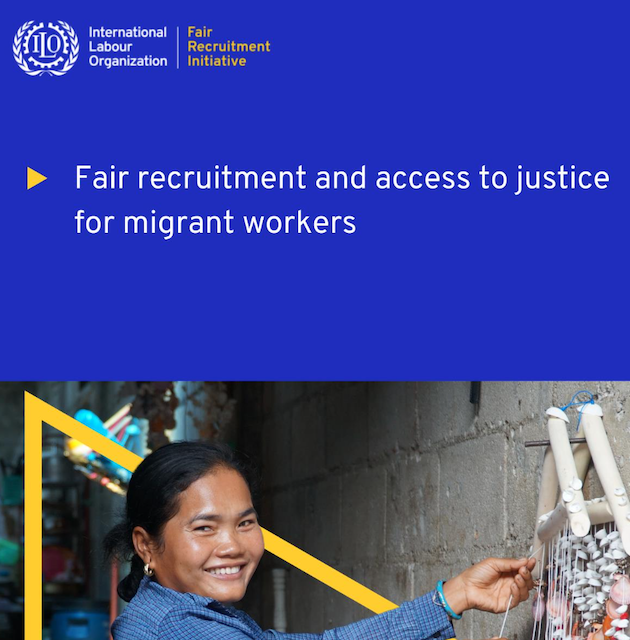Report Published with Work Better Innovations Contribution
26 July 2022. Work Better Innovations is proud to have worked on this International Labour Organization (ILO) discussion paper with colleagues at Equidem Research and Consulting on migrant workers’ right to access to justice in the context of labour recruitment. This paper is released under ILO Fair Recruitment Initiative.
The paper sets out not only the abuses that migrant workers face during their recruitment process, but also importantly on emerging good practices to improve their access to justice. We are proud to see this report published and contribute to wider discussions on how to make decent work for all a reality.
The failure to provide migrant workers access to justice for abuses faced during their recruitment is a major obstacle that makes them vulnerable to exploitation and abuse.
Around 170 million individuals live and work outside their country of origin in pursuit of decent work and better livelihoods. Many are recruited by public and private employment agencies that are meant to match available jobs with suitably qualified workers. It is during the recruitment phase that migrant workers, especially low-wage workers, are particularly at risk of entering a cycle of abuse and exploitation.
Recruitment-related abuses can involve the charging of recruitment fees, deception about their jobs, retention of passports, illegal wage deductions, debt bondage, threats of arrest, expulsion or deportation. When these abuses happen, workers must have the right to access justice in order to to seek effective remedy.
Access to justice is central to making human rights and labour rights a reality for all workers. However, migrant workers can face obstacles in their seeking of remedies for recruitment-related abuses, such as legal, accessibility and enforcement barriers. These challenges are shared across migration corridors, with each barrier manifests itself in unique ways in each setting and of intersecting forms of discrimination.
Please read the full discussion paper to learn more about the abuses migrant workers face during the recruitment process, their barriers to access justice, as well as emerging good practices to improve their access to justice.
* Synopsis adopted from the executive summary, pp. 3-6, of the discussion paper.



